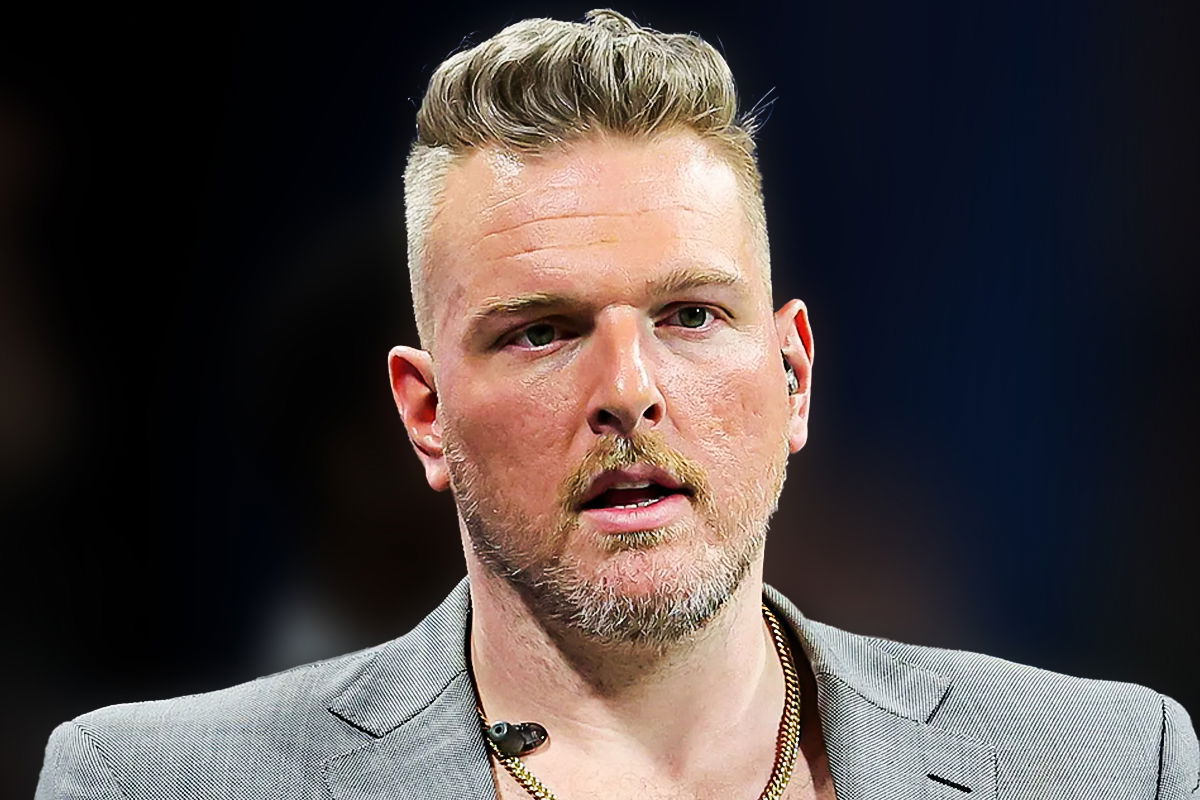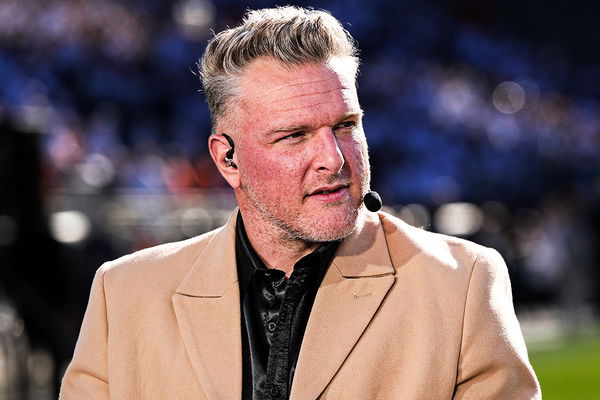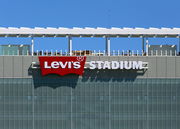

When MLB executive Bryan Seeley was named to lead the new NIL Commission, many eyebrows were raised. Many expected Nick Saban to take charge, but that never happened, and Saban himself wasn’t exactly keen on the idea. And Seeley’s closest experience with college sports before this was covering them as a student journalist for the Daily Princetonian. Now, he steps into the top role as CEO of this potentially powerful new College Sports Commission, navigating entirely new territory. This didn’t sit well with Pat McAfee, who openly questioned why someone from a league often criticized for its own problems was chosen to shape the future of college athletics.
Watch What’s Trending Now!
So, what exactly is this commission for? Money is finally becoming available for college athletes. Schools can now share up to $20.5 million in revenue with their players each year, marking a huge change in the landscape. A $2.8 billion settlement is also providing back pay to athletes who played from 2016 to 2024. This yearly revenue sharing is set to increase by at least 4% for the next ten years. Bryan Seeley also leads Deloitte’s NIL clearinghouse, a key role where he checks third-party deals over $600 in this quickly changing environment.
Looking at his background, Bryan Seeley now seems like a good fit for this role. He calls himself a lifelong college sports fan and brings over ten years of experience in compliance, enforcement, investigations, and policy at MLB. Before that, he spent eight years with the Department of Justice and holds a law degree from Harvard. He’s not just talking about it; he genuinely sees this as a crucial chance to make a big difference.
ADVERTISEMENT
Drawn by the opportunity to guide college football through such a major shift, Seeley sounds fully committed to the challenge, stating, “I view this as an area where I can really add value.” But Pat McAfee, without mincing words, called Seeley’s move to college football a nightmare from the very beginning on ESPN College Football.
McAfee said, “The first main one: there is the sports commission that you’re talking about that has been put together. If people were to list groups that s–k at their jobs, I think the NCAA would be last in professional sports, and then the MLB would be right above it, wouldn’t it? I think literally every other league would be above—even the NLL and the PLL.” The ESPN analyst quickly compared Paul Rabil’s abilities to Seeley’s, stating, “You’d put Rabil in there above the MLB with how they go about handling their business as a whole.”

Imago
Credits: Imago
Pat McAfee then shared his honest thoughts about Bryan Seeley leading the NIL Commission. “So when I see a guy from the MLB is heading it up, my immediate thoughts are, ‘Oh great. That’s great. Let’s get the guy from the league that doesn’t do good to head up this brand-new thing. But everybody says this is the right guy for the job, I think. Is that because he wants the job? And what type of experience does he have that makes us think, Okay, he’ll be good for the job?”
ADVERTISEMENT
Bringing in a new leader for the college football commission naturally raises questions, especially since MLB isn’t often seen as a prime example to follow. However, this doesn’t mean Bryan Seeley lacks the necessary skills. Seeley built MLB’s investigations unit from the ground up, hiring lawyers and former law enforcement officers. He also played a key role in MLB’s sign-stealing investigation involving the Houston Astros in 2020. These achievements helped him earn a strong reputation. “I have no doubt he will bring the same level of excellence to the College Sports Commission. College sports will greatly benefit from Bryan’s expertise and vision,” MLB Commissioner Rob Manfred said.
ADVERTISEMENT
For McAfee, his concern is simply about Seeley’s background, not his abilities. “I certainly am happy that somebody’s signing up for this role. I am happy that he has experience in professional sports. But the MLB is nowhere near a place where anybody looks at it and says, ‘Yeah, that’s the model on how we should do things.'” Meanwhile, Bryan Seeley is settling into his new role, despite the skepticism.
Bryan Seeley is ready to lead
Seeley hasn’t officially started his new role, but time is critical: athlete revenue sharing kicks off July 1st. The Deloitte-managed NIL clearinghouse, vetting deals over $600, will also launch soon. This new system, with LBi Software managing salary caps and Deloitte overseeing NIL deals, will be complex. These NIL deals are separate from school revenue shares, and their approval process is a major topic. Deloitte’s platform, called NIL Go, will ensure athlete deals are for real business, not just recruiting. Plus, investigations into deals are expected to be resolved swiftly, within 45 days, a big change from past NCAA methods.
ADVERTISEMENT
Seeley has no time to ease into his role. Major conference schools are already getting ready to follow new rules under his and independent arbitrators’ guidance. While nothing is guaranteed, Seeley feels confident. He stated, “I haven’t been given assurances of anything, but I do know from my read on this, there is buy-in from the institutions.” This cooperation will be key as the College Sports Commission (CSC) starts enforcing its new rules.
So, Seeley will again build a strong investigations team, understanding the limits but ready for the challenge. He explained, “These are going to be more private-sector investigations, right? We don’t have subpoena power. We don’t have search-warrant power. I’ve operated in that system for over a decade, so I’m well-suited to continue to do that with college sports.”
Top Stories
Bills Officially Cut Ties With 4 Players as Josh Allen Remain Without HC After Philip Rivers Quits

Bills Announce Joe Brady as Head Coach: Contract, Net Worth, NFL Earnings & More

Travis Kelce Makes Major Career Decision as Chiefs TE Contemplates Retirement

ICE to Conduct Immigration Enforcement at Patriots vs. Seahawks Super Bowl LX at Levi’s Stadium, as Per Official

Jerry Jones’ Cowboys Make Triple Firing Decision After Blocking Coach’s Exit

Max Scherzer’s “Unfinished Business” Sends Clear Signal to Blue Jays After Honest Plea to All 30 MLB Teams

Seeley confidently added, “I think I’m one of the few people in the country who’s probably led investigations into salary-cap circumvention, and so in terms of the subject matter, at least for part of this, I have a lot of experience.”
ADVERTISEMENT
Even though MLB doesn’t have a strict salary cap, its international amateur player signings do have spending limits. A key case Seeley handled involved the Atlanta Braves, whom he found to have gone around international signing rules for three years in a row (2017). This resulted in a five-year ban for Braves’ former GM John Coppolella. In 2016, Seeley’s team also penalized the Boston Red Sox for similar rule-breaking in the international market. With a future plan in place and some doubts swirling, let’s see how Bryan Seeley guides college sports into its new era.
ADVERTISEMENT
ADVERTISEMENT
ADVERTISEMENT



